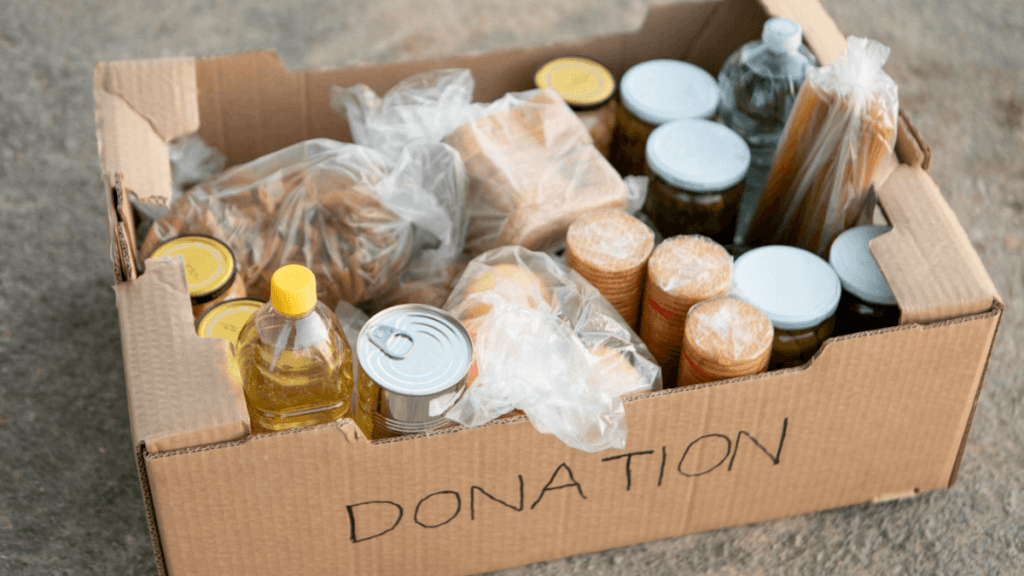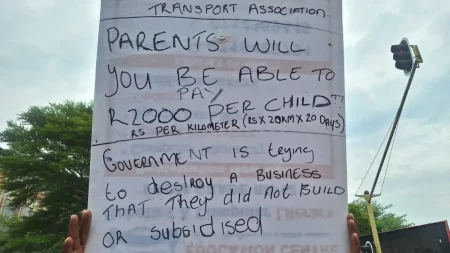The Gauteng Food Bank is currently at the center of a heartbreaking crisis. With over 5,600 food parcels rotting away in its warehouse, the issue isn’t a lack of food but the absence of the necessary funding to distribute it. This tragic situation highlights the complexities and bureaucratic challenges of getting aid to those who need it most.
Since April 2023, the Gauteng Food Bank has been receiving food supplies, but without funds to cover operational costs such as warehouse space, vehicle rentals, fuel, and staff salaries, the food parcels have been left to accumulate and deteriorate. In this article, we dive deep into the factors that contributed to this crisis, its impact on the community, and what steps can be taken to prevent such occurrences in the future.
What Led to the Crisis?
A Disconnect Between Supply and Distribution
The Gauteng Food Bank has been receiving food parcels from private companies contracted by the Gauteng Department of Social Development (DSD). These parcels, which include non-perishable items and fresh vegetables, are meant to alleviate hunger in low-income communities. However, since the withdrawal of the food bank’s operational funding in April, distribution has come to a halt.
This situation has created a paradox: while food is being delivered to the food bank, it is left to rot because there are no funds to transport it to families in need. Despite good intentions, the lack of logistical support has led to significant wastage and suffering for the very people the department is supposed to serve.
Flawed Forensic Audit and Funding Withdrawal
The withdrawal of funds came after a flawed forensic audit initiated by former social development MEC Mbali Hlophe. The audit raised allegations of financial irregularities related to unspent funds, despite the food bank providing evidence that these funds were returned to the department. The Gauteng Food Bank has appealed the findings and offered full transparency, but the funding has yet to be reinstated.
In the meantime, the food bank has accumulated rent arrears of R500,000, and its staff have been left unpaid and unable to work since April. This halt in operations has led to the accumulation of food parcels, now estimated to be worth over R4 million, which are at risk of rotting away entirely if not distributed soon.
Other News: SASSA Issues Statement on 17 Million SRD Grant Applications
Impact on Vulnerable Communities
Food Security in Gauteng at Risk
The implications of the Gauteng Food Bank crisis are far-reaching. Low-income families who rely on these food parcels for their survival are left without crucial support. Many households in the Gauteng area are already grappling with unemployment, poverty, and food insecurity, making these parcels a lifeline that’s now inaccessible.
Food security is a basic human right, and denying access to available food due to logistical and administrative failures can have severe consequences on public health, community stability, and individual wellbeing.
Loss of Trust in Government Institutions
Incidents like these also erode trust in government institutions and their ability to manage social welfare programs effectively. Communities who are promised support but do not receive it may lose confidence in future initiatives, making it harder for the government to implement similar programs.
Possible Solutions and Future Directions
The current crisis highlights a need for more robust mechanisms to ensure that food aid reaches its intended recipients. Several steps can be taken to prevent such issues in the future:
1. Reinstating Funding for the Gauteng Food Bank
The immediate priority should be reinstating the necessary funds for the food bank’s operations. The Gauteng Department of Social Development should expedite the process of funding reallocation or appoint a temporary administrator to resume distribution as soon as possible.
2. Establishing Partnerships with Local Organisations
Establishing partnerships with local NGOs and community organisations can help streamline logistics. Leveraging community volunteers and local transportation services can reduce distribution costs and ensure food parcels reach families in a timely manner.
3. Transparent Auditing and Dispute Resolution
To avoid future disputes over funding, a transparent and accountable auditing process should be established. Independent third-party audits could provide unbiased reports, and a clear dispute resolution mechanism should be in place to address any discrepancies without halting critical services.
4. Public-Private Partnerships
Encouraging private companies to participate not only in food supply but also in distribution could mitigate the impact of any future funding withdrawal. Companies could be incentivised through tax benefits or public recognition programs for their contributions to community welfare.
5. Digital Monitoring of Food Bank Operations
Implementing digital solutions such as real-time tracking of food parcel distribution can ensure transparency and accountability. This would also help identify bottlenecks in the process and address them before they escalate into crises.
Community Response and Support
Civic Action and Advocacy
Communities have started raising their voices, calling for swift action from the government. Civic groups and NGOs are putting pressure on the Gauteng Department of Social Development to address the issue and resume distribution. This is a crucial step in ensuring that the department is held accountable and that the food parcels are distributed before they become completely unusable.
Donations and Local Support
Meanwhile, some local groups have stepped in to provide emergency relief to affected families. Donations of food, clothing, and other necessities have been organised to alleviate the immediate needs of those who would have benefited from the Gauteng Food Bank.
A Call to Action: Preventing Future Food Crises
The Gauteng Food Bank crisis is a stark reminder of the need for better coordination and support for social welfare programs. With thousands of families depending on these food parcels, it is essential that the government, private sector, and communities work together to prevent such crises in the future.
We call on the Gauteng Department of Social Development to prioritise this issue and release the necessary funds to get the food parcels to the people who need them most. No family should go hungry when food is available but left to waste because of logistical challenges.
The Gauteng Food Bank crisis is a tragic example of systemic failure and mismanagement. With food rotting away in warehouses while families go hungry, the situation is not just a logistical issue but a humanitarian one. By reinstating funding, improving auditing processes, and fostering stronger partnerships, we can ensure that no family is left without food and that future food aid programs are executed efficiently and transparently.
This article first appeared on GroundUp.










